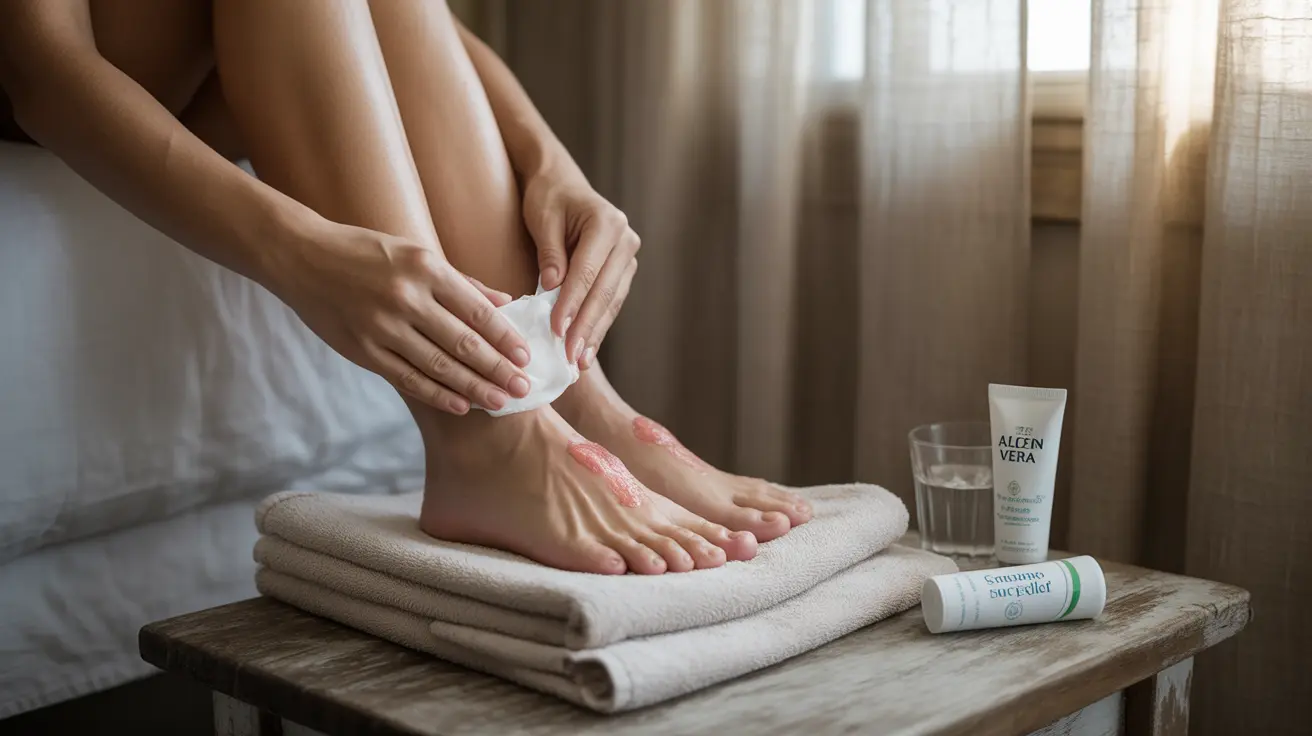Experiencing swollen feet after a day in the sun can be both uncomfortable and concerning. When your feet become sunburned, the body's natural inflammatory response can lead to noticeable swelling, making it difficult to walk or wear shoes comfortably. Understanding why this happens and how to address it is crucial for proper recovery.
This comprehensive guide will explore the causes of sunburn-related foot swelling, effective treatment options, and essential prevention strategies to protect your feet from future sun damage.
Understanding Why Feet Swell After Sunburn
When your feet are exposed to excessive UV radiation, it triggers an inflammatory response in the skin. The body sends extra fluid and white blood cells to the affected area, resulting in swelling (edema). The tops of the feet are particularly vulnerable to sunburn due to their direct exposure to sunlight, especially when wearing open shoes or going barefoot.
Signs and Symptoms of Sunburned Feet
Sunburned feet typically exhibit several distinctive symptoms:
- Redness and warmth
- Swelling around the ankle and top of the foot
- Tenderness or pain when walking
- Skin that feels tight or stretched
- Blistering in severe cases
- Increased pain when wearing shoes
Immediate Treatment Steps
When you notice your feet becoming swollen from sunburn, taking prompt action can help reduce discomfort and promote healing:
Cool the Affected Area
Apply cool compresses to the sunburned areas for 10-15 minutes at a time. This helps reduce inflammation and provides immediate relief from the burning sensation.
Elevate Your Feet
Keep your feet elevated above heart level when possible to help minimize swelling and improve circulation to the affected areas.
Stay Hydrated
Drink plenty of water to help your body recover from sun exposure and maintain proper fluid balance, which is essential for healing.
Long-term Management
For ongoing care of sunburned, swollen feet:
- Apply aloe vera gel or moisturizer
- Take over-the-counter pain relievers if needed
- Wear loose, comfortable footwear
- Avoid further sun exposure until healing is complete
Warning Signs of Complications
Some symptoms may indicate a more serious condition requiring medical attention:
- Severe blistering
- Intense pain that worsens
- Signs of infection
- Fever or chills
- Extreme swelling that doesn't improve
Prevention Strategies
Protecting your feet from sun damage is essential:
- Apply broad-spectrum sunscreen (SPF 30 or higher)
- Reapply sunscreen every 2 hours or after swimming
- Wear protective footwear
- Seek shade during peak sun hours (10 am to 4 pm)
- Consider using UV-protective clothing
Frequently Asked Questions
What causes feet to swell after getting a sunburn?
Feet swell after sunburn due to the body's inflammatory response to UV damage. This natural reaction causes blood vessels to dilate and fluid to accumulate in the affected tissues, resulting in visible swelling.
How can I relieve swelling and pain in my sunburned feet at home?
You can relieve symptoms by elevating your feet, applying cool compresses, using aloe vera gel, taking over-the-counter pain relievers, and staying well-hydrated. Wearing loose footwear also helps reduce discomfort during healing.
When should I seek medical help for swollen feet caused by sunburn?
Seek medical attention if you experience severe blistering, intense pain that worsens, signs of infection, fever, chills, or extreme swelling that doesn't improve with home treatment.
What is the difference between a typical sunburn and sun poisoning on the feet?
Sun poisoning is a more severe reaction than typical sunburn, characterized by blistering, severe swelling, fever, nausea, and sometimes dizziness. While regular sunburn causes mild to moderate discomfort, sun poisoning requires immediate medical attention.
How can I prevent my feet from getting sunburned and swollen in the future?
Prevent sunburned feet by applying broad-spectrum sunscreen regularly, wearing protective footwear, seeking shade during peak sun hours, and using UV-protective clothing when possible. Remember to reapply sunscreen every two hours or after water exposure.




